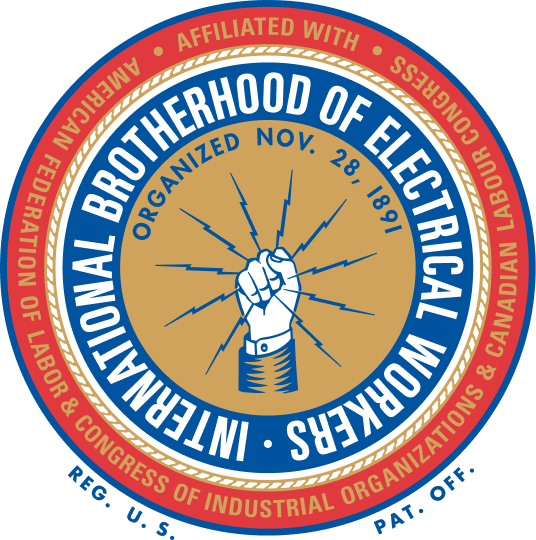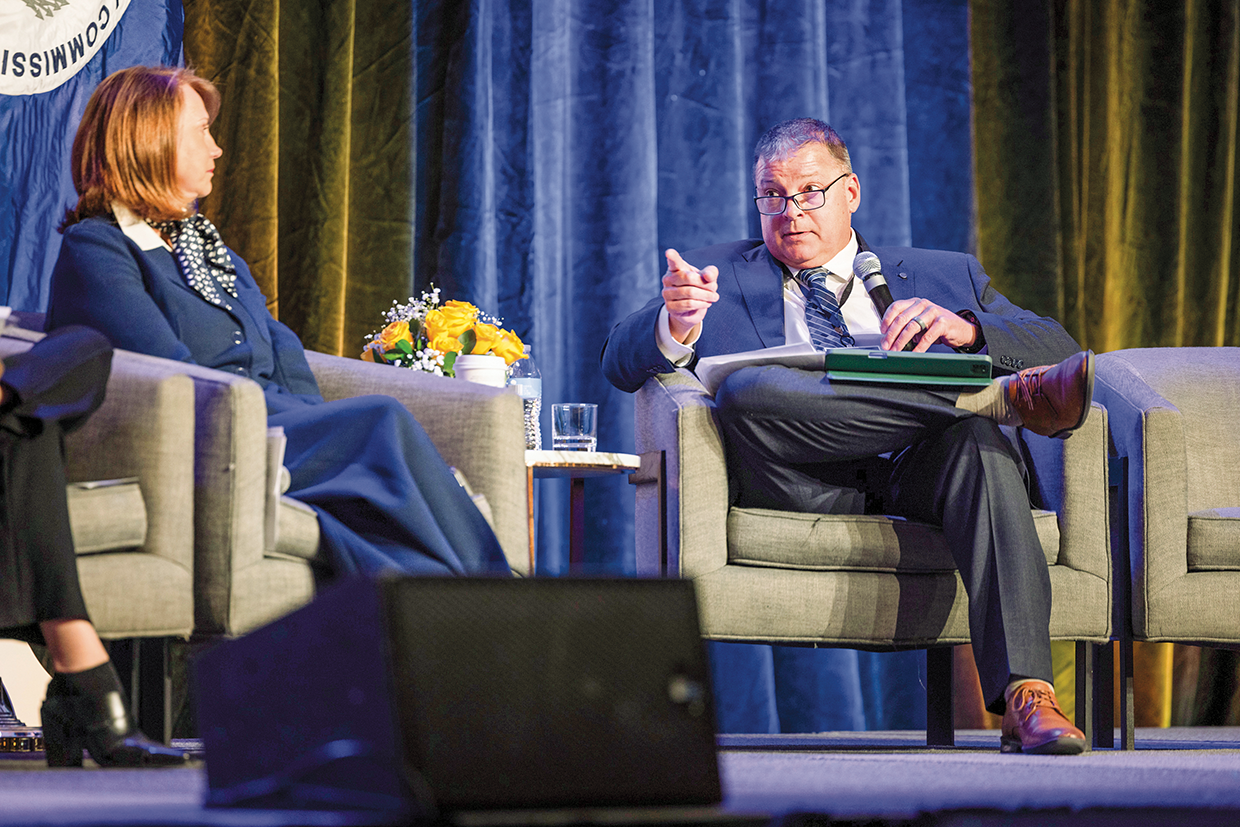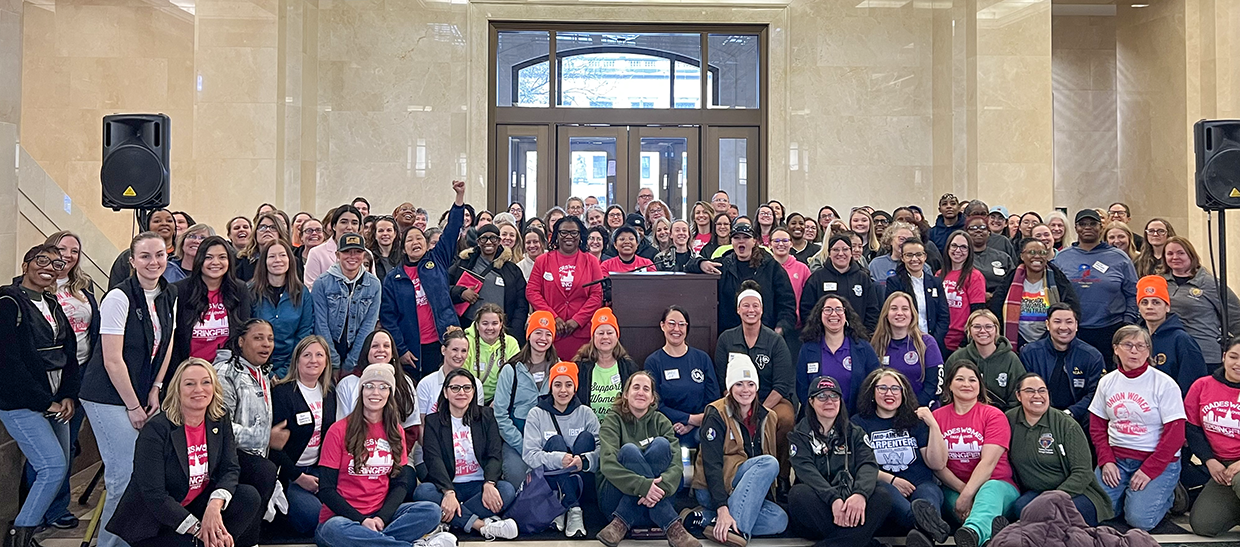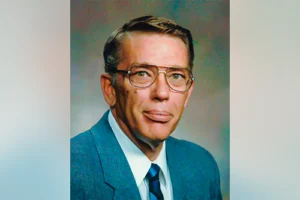
DECEASED — Joe Fashion, a dynamic business manager who built Toronto Local 353 into a powerhouse and represented Canada on the International Executive Council, died in November at age 88.
Nicknamed “Joe Cool” for his calm under pressure and fearlessness in thinking big, Fashion led the multi-sector local for two decades beginning in 1987. His strategies for organizing, bargaining, training, facilities and other successes led to his appointment to the IEC for four years, serving until his retirement from both posts in 2007.
“Nothing seemed to faze him,” said current Local 353 Business Manager Lee Caprio. “He had a vision for the local, and he took a lot of heat for it at times. You needed someone who was strong enough to withstand the onslaught, and Joe Cool was exactly that.”
Bill Martindale, a retired First District representative out of Local 353, watched Fashion grow from a “regular guy on the tools” into a passionate and inspiring leader.
“He would do things in the toughest of times that he knew in the future would be best,” Martindale said. “He would go to bat for something that wasn’t considered sellable, that had so much opposition, but he’d get through it. He hired organizers when other locals didn’t. He built a hall in very difficult times, and it turned out to be the best thing we ever did.”
Along the way, Fashion strengthened Local 353’s relationship with IBEW leadership in Washington, D.C., and in 2003 invited International President Edwin D. Hill to the local’s 100th anniversary party.
“People didn’t really know who we are,” said Caprio, the local’s training director at the time. “Then Ed spoke about Joe in a way that changed that. He said something to the effect of, ‘It’s not hard to believe a leader like Joe Fashion is able to lead his membership to be the fourth-largest local in North America.’
“I think that was the first time the U.S. had acknowledged that we were a superpower in the IBEW world,” Caprio said.
To accomplish that, Fashion had to manage near-constant pushback while forging ahead with organizing programs, capital investments, pension increases and other progress, ultimately converting many naysayers. “He motivated others to think long term and to think about the overall health of the local,” Martindale said.
His sincerity had a way of winning people over, Caprio said.
“Joe remained very firm and he was always levelheaded, even when union meetings would get out of hand,” he said. “He’d come down to the microphone on the floor, and he’d speak from his heart. Even people who didn’t like him would end up cheering and clapping.”
He also had enormous respect in the industry, Caprio said, noting the relationship between Fashion and the head of Toronto’s largest electrical contractor.
“Both sides created this atmosphere of fairness, of friendliness and mutual respect,” Caprio said. “In fact, that’s where the name Joe Cool came from, because everybody thought, ‘This guy just doesn’t buckle under pressure.’ He did business in a very gentlemanly way.”
Fashion was determined to organize nonunion contractors during an era when many locals — including his own, previously — balked at outside recruitment.
“He was all about changing the culture,” Martindale said. “He hired me as an organizer in 1990 and mentored me and guided me through it. Membership increased tremendously in his time.”
Significant growth came from Fashion’s push to organize low-rise contractors, a sector of the building industry that was, and still is, largely nonunion.
“Joe had to really pay the political capital for that, but it worked out,” Caprio said. “Twenty-five years later, we now have probably 95% of the residential market in the greater Toronto area.”
Fashion loved sports, especially hockey, and played for years on IBEW baseball and hockey teams. As business manager, he created a sports and entertainment fund for members to help build friendship and solidarity.
“He was all about that kind of thing,” said Martindale, his longtime teammate. “He created a retirees’ fund, he held picnics, he encouraged volunteerism. When I was just a 20-year-old apprentice, he encouraged me to go to union meetings and Labor Day parades. It was quite an education.”
Above all, he said, Fashion was a true friend and ally.
“No matter how busy he got, Joe was the kind of person who would still go the extra mile for you,” Martindale said. “He would always make the time.”
Fashion’s survivors include his son, Todd J. Fashion, three grandchildren and two great-grandchildren, among many other loving friends and relatives. He was preceded in death by his wife, Grace, and daughter, Lucy Anne Walker.
On behalf of officers, staff and members, the IBEW offers our heartfelt condolences, with gratitude for Brother Fashion’s decades of dedicated and lively service.












